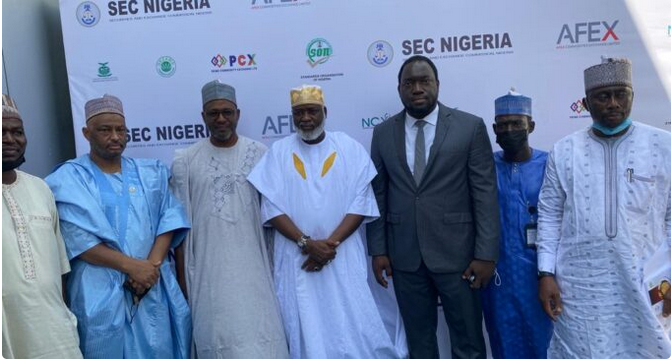AFEX, one of Nigeria’s commodity players, has partnered with the Securities and Exchange Commission (SEC) and the Standards Organisation of Nigeria (SON) to strengthen the understanding of stakeholders on commodity standards.
The workshop tagged ‘Commodity Standards Sensitization,’ held recently in Kano and Lagos states.
Speaking at the event, Abdullahi Ganduje, governor of Kano, said that commodities exchanges can act as catalysts for the development of critical sectors.
Ganduje, represented at the event by Nasiru Gawuna, his deputy, added that commodities exchanges offer a credible platform for trading and facilitating the export of commodities.
“To achieve this… our commodities must conform with internationally accepted standards,” he said.
He said that Kano state is seeking to enhance agricultural productivity of small and medium-scale farmers as well as improve value addition along three priority value chains of rice, wheat, and tomato through the Agro-processing, Productivity Enhancement, and Livelihood Improvement Support Project (APPEALS).
Also speaking at the event, Ayodeji Balogun, chief executive officer (CEO) of AFEX, said: “We are building a trust economy in which you receive exactly what you pay for. Having such a market enables liquidity, pricing transparency, and more contracts, options, and marginalized services to processors and investors. Future price stabilisation will be achieved in this manner.”
Balogun emphasised the commitment of AFEX to attaining food security for the country.
He argued that if standards are established in the commodities space, there would be more financial input for smallholder farmers by financial institutions, and commodities may be exported for much-needed foreign currency to assist our economy to thrive.
In his remarks, Lamido Yuguda, director-general of SEC, said that the establishment of relevant standards would be transformational for the Nigerian commodities trading ecosystem.








